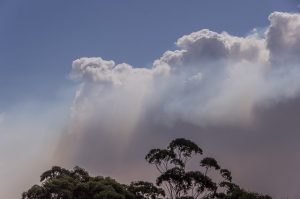4 March 2019
VICTORIA: People with asthma in the Bunyip State Park region affected by bushfire smoke are being urged to keep asthma medication on hand and avoid exposure to smoke wherever possible.
If you are experiencing breathing difficulties such as shortness of breath, seek immediate medical attention and commence asthma first aid.
Children, the elderly and those with asthma or respiratory illnesses are most vulnerable.
If you choose to evacuate from your home, and you have asthma, remember to take your medication with you.
If you have asthma you are advised to:
- Ensure you have a blue/grey reliever puffer on hand. Reliever puffers are available over the counter at any pharmacy
- Continue to take your preventer medication
- Follow your Asthma Action Plan
- Keep inside and close windows and doors. Avoid exercise and turn air conditioners to recycle air from inside only
- Ensure you or a loved one know the 4 steps for asthma first aid and what to do in an asthma emergency
- Keep abreast of changes in weather conditions

If you aren’t diagnosed with asthma but start to experience symptoms like a shortness of breath, tightness of the chest, coughing or wheezing, and you have no immediate access to a reliever puffer, seek medical care or in the event of an emergency call Triple Zero (000).
Asthma First Aid
- Sit the person upright
- Give 4 separate puffs of a blue/grey reliever puffer
- Wait 4 minutes
- Repeat if no improvement
- If no improvement call Triple Zero (000)
Important Contacts
- 1800 ASTHMA (1800 278 462) for asthma advice
- Asthma First Aid steps
- National Home Doctor Service 13 SICK (13 74 25) for after-hours home doctor visits (bulked billed)
- If you are unable to access a General Practitioner, call 13 HEALTH (13 43 25 84) available 24 hrs 7 days.
- To speak to a registered nurse, call Healthdirect on 1800 022 222*(this is an Australian wide 24 hour triage)
- In an emergency, always call Triple Zero (000)
One in nine Australians have asthma and every person’s asthma has different triggers. Its important people know and understand their triggers to stay safe in extreme weather.
If you would like to learn more about asthma management and how to well controlled in unexpected weather events, call the free 1800 ASTHMA (1800 278 462) service to speak to an Asthma Educator.





 1800 278 462
1800 278 462


